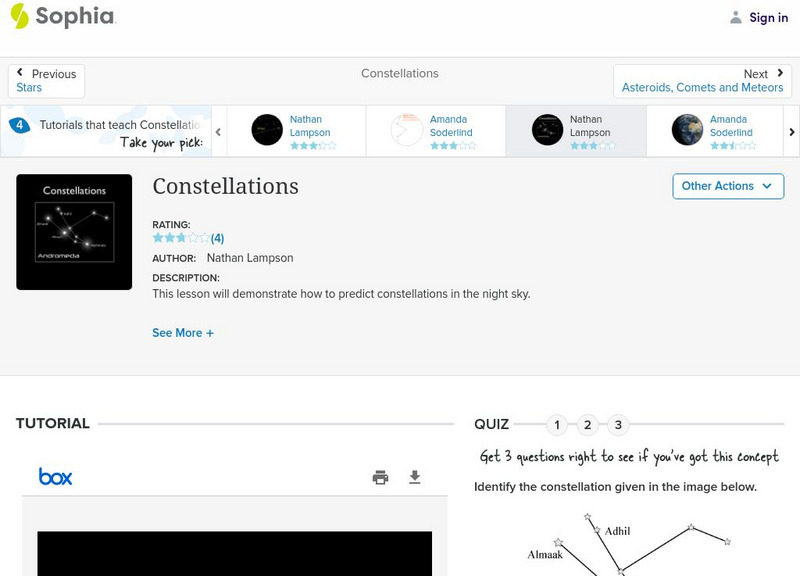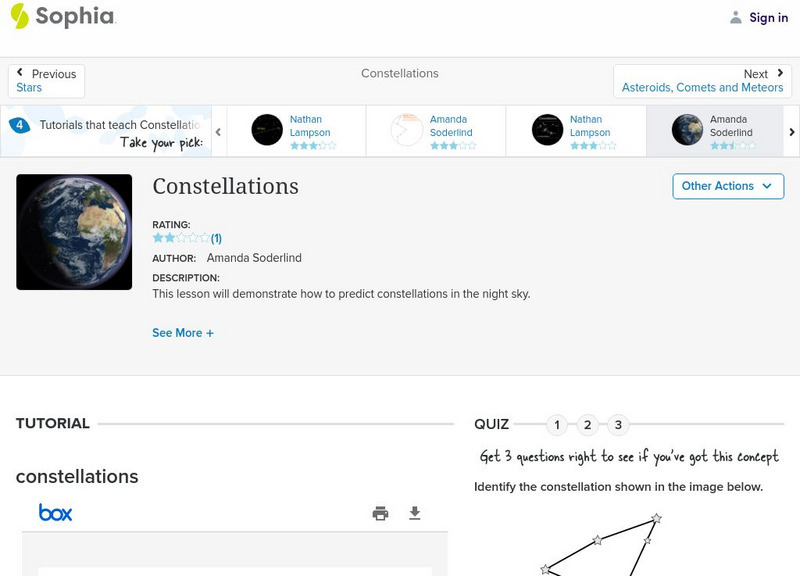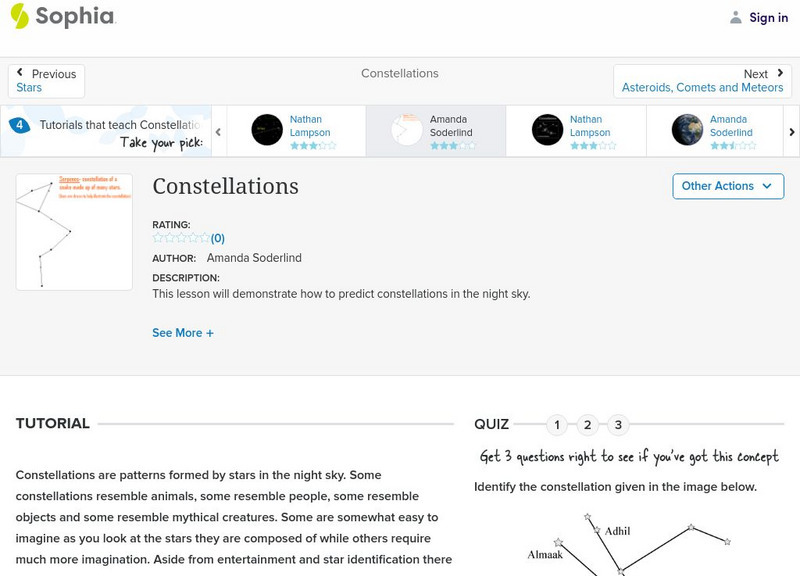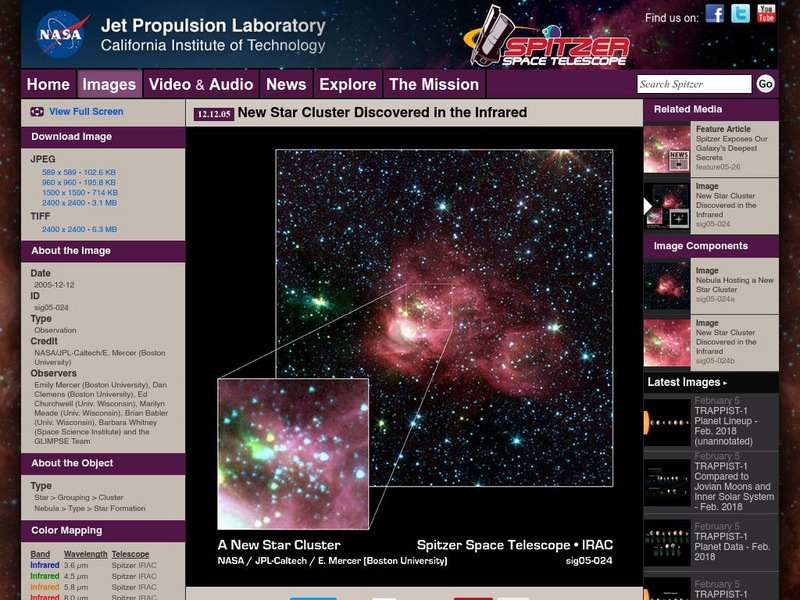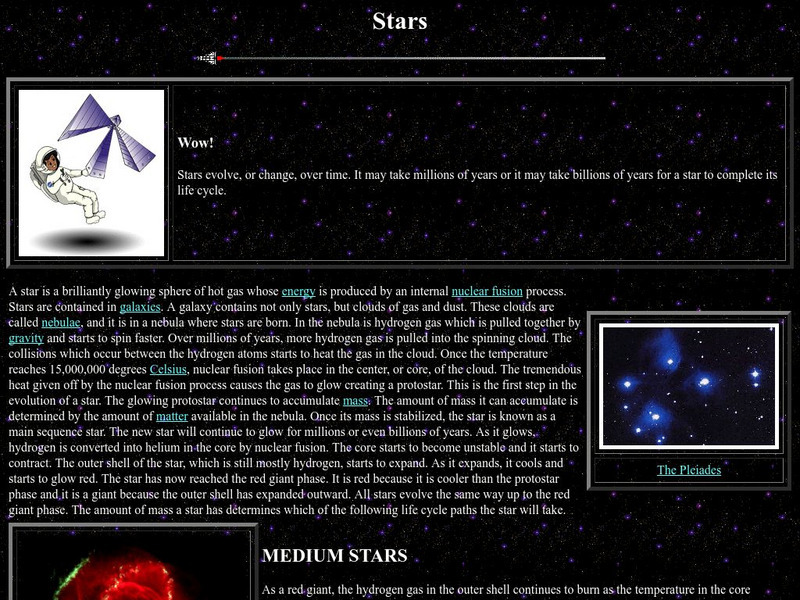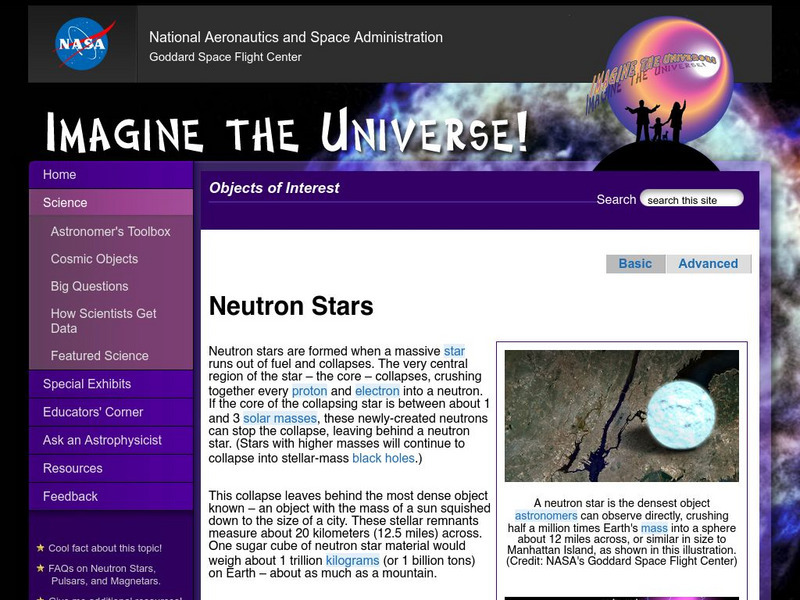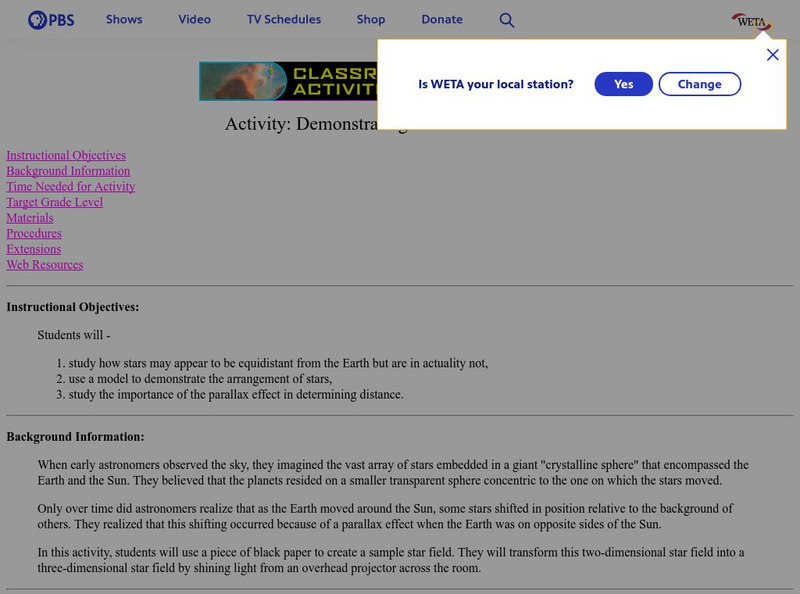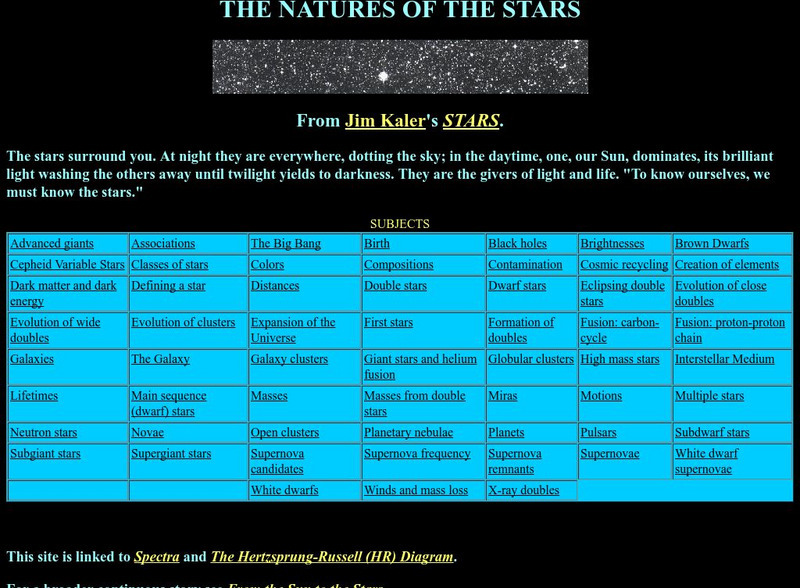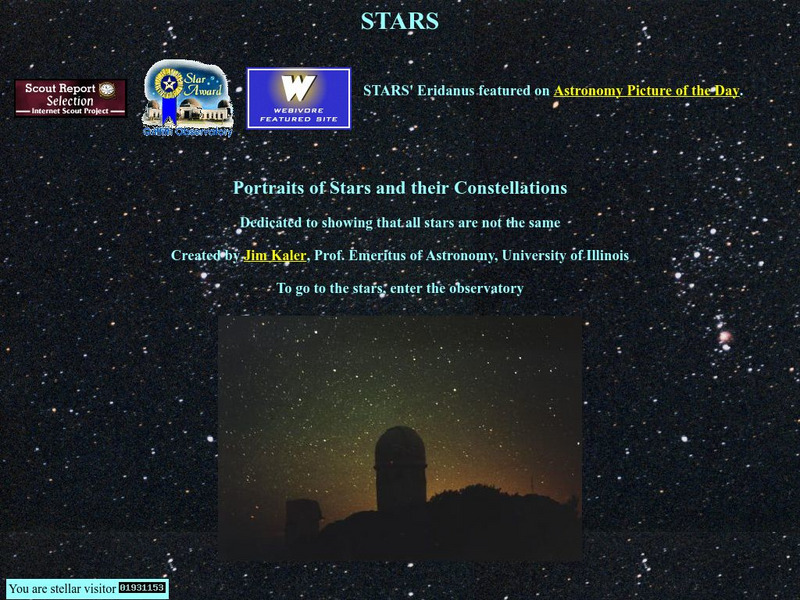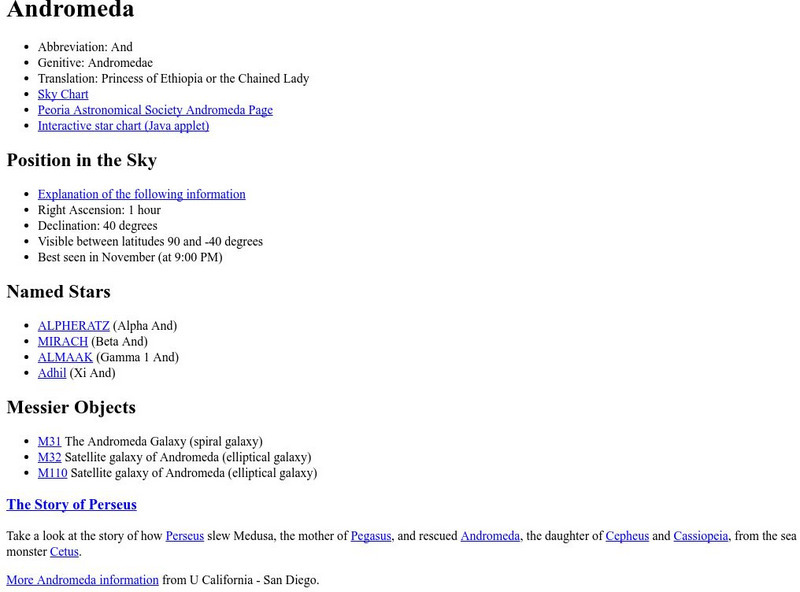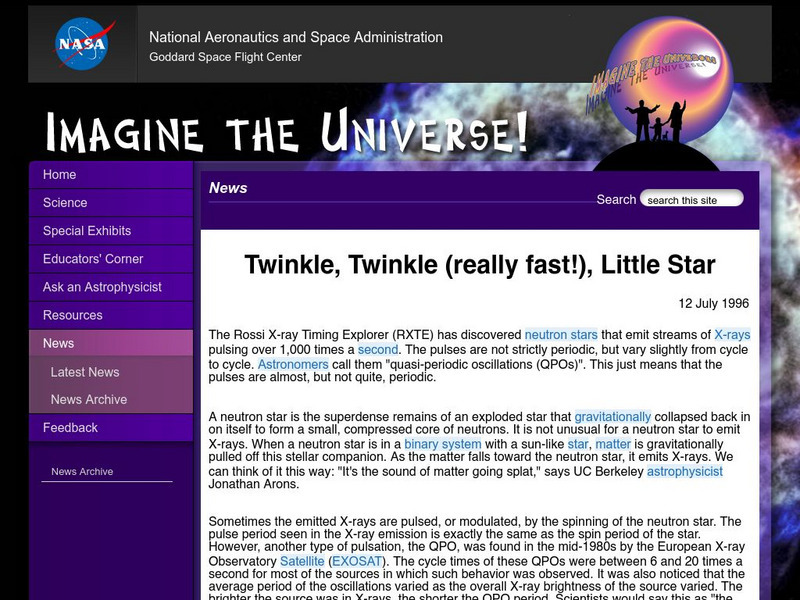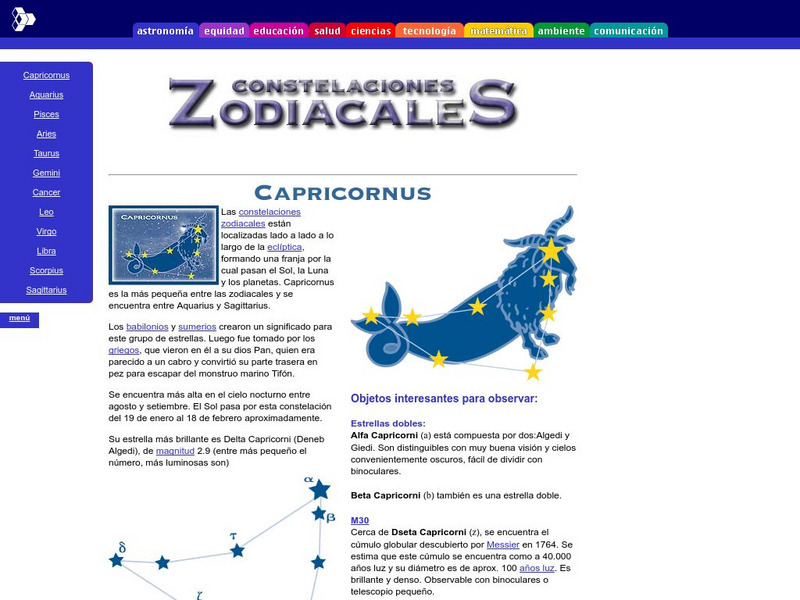Hi, what do you want to do?
Mocomi & Anibrain Digital Technologies
Mocomi: What Is a Constellation?
Constellations are patterns formed by groups of stars. Take a look at some of the familiar constellations.
Ducksters
Ducksters: Astronomy for Kids: Constellations
Kids learn about the constellations in the science of astronomy. These stars that form patterns when viewed from the Earth have been studied since ancient times.
Mocomi & Anibrain Digital Technologies
Mocomi: What Is a Star?
Learn about stars, how they are formed, the biggest and smallest star, what they look like, well-known stars and constellations, and other interesting facts.
Sophia Learning
Sophia: Constellations: Lesson 2
This lesson will demonstrate how to predict constellations in the night sky. It is 2 of 4 in the series titled "Constellations."
Sophia Learning
Sophia: Constellations: Lesson 3
This lesson will demonstrate how to predict constellations in the night sky. It is 3 of 4 in the series titled "Constellations."
Sophia Learning
Sophia: Constellations: Lesson 1
This lesson will demonstrate how to predict constellations in the night sky. It is 1 of 4 in the series titled "Constellations."
Sophia Learning
Sophia: Constellations: Lesson 4
This lesson will demonstrate how to predict constellations in the night sky. It is 4 of 4 in the series titled "Constellations."
California Institute of Technology
Spitzer Science Center: A New Star Cluster
The image entitled, "A New Star Cluster" shows the formation of a new group of stars located in the Milky Way galaxy. The text below the image goes into detail on describing the various specifics of the image.
NASA
Nasa Star Child: Stars (Level 2)
This NASA site that explains the notable features of stars and constellations, including medium and massive stars. Many terms are clickable links to definitions. There is also a link to the Level 1 version of this site, which is written...
NASA
Nasa: Imagine the Universe: Neutron Stars and Pulsars
Discover what neutron stars and pulsars are and view pictures of them. Includes links to additional resources and lesson plans.
PBS
Star Map
This star map has five different constellations along with four newly discovered solar systems. If you are located in the northern hemisphere you can use this resource to locate stars.
NASA
Nasa: Imagine the Universe: X Ray Binary Stars
Site provides a brief introduction to binary stars. Additional resources for students and teachers on this topic are offered as well as related topics.
PBS
Pbs Teachers: Demonstrating the Distances of Stars
Investigate the use of the parallax effect for determining distance in space, and explore the arrangement and relative distance of stars in the galaxy. Create a sample star field and transform it into a three-dimensional model.
ClassFlow
Class Flow: Stars Project
[Free Registration/Login Required] This flipchart is a research project on stars, completed by first graders.
Enchanted Learning
Enchanted Learning: Zoom Astronomy: All About Space
A fantastic collection of information about the solar system. Includes information on all of the planets, the moon, the sun, asteroids, comets, meteoroids, and stars. Also find puzzles, a dictionary, quizzes, classroom activities, and...
University of Illinois
University of Illinois: Stars and Constellations: Red Giant Stars
This resource discusses advanced giants, super giants, and giant stars. Links in the information provide further information on specific terms.
University of Illinois
University of Illinois: Stars and Constellations: White Dwarf Supernovae
Discusses the formation of the white dwarf and the role this star plays in the formation of a white dwarf supernovae.
University of Illinois
University of Illinois: Stars and Constellations
A large collection of information about and photos of the starts and constellations in the sky.
University of Wisconsin
Constellations and Their Stars: Andromeda
This site has factual information about Andromeda. Also contains other links.
Other
University of Rhode Island: Zodiac Constellations
Here's a short explanation about the twelve special constellations in the part of the sky called the Zodiac.
NASA
Nasa: Imagine the Universe: "Twinkle, Twinkle (Really Fast!), Little Star"
"The Rossi X-ray Timing Explorer has discovered neutron stars that emit streams of X-rays pulsing over 1,000 times a second." Visit this site to read the rest of this article. Site offers additional resources as well as a Teacher's Corner.
Fundación Cientec
Fundacion Cientec: Constelaciones Zodiacales
This site provides detailed history and star cluster location information for each zodiac constellation. Also includes links (mostly to Wikipedia pages) to additional information for keywords that appear in the articles.
Other
Denver Museum of Nature and Science:telling Time at Night Using Big Dipper [Pdf]
Students examine how to tell time by using the stars and arithmetic. Some topics explored are the Big Dipper, the North Star, and the Little Dipper.
Other
Neave Lab: Planetarium
This virtual planetarium allows you to view the sky as you wish. Using your mouse, point at stars to see their name, magnitude and constellation. You are also able to change the date, time, and location. This site is extremely...
Other popular searches
- 10 Star Constellations
- Science Star Constellations
- Star Constellations Search
- Constellations Star Charts







